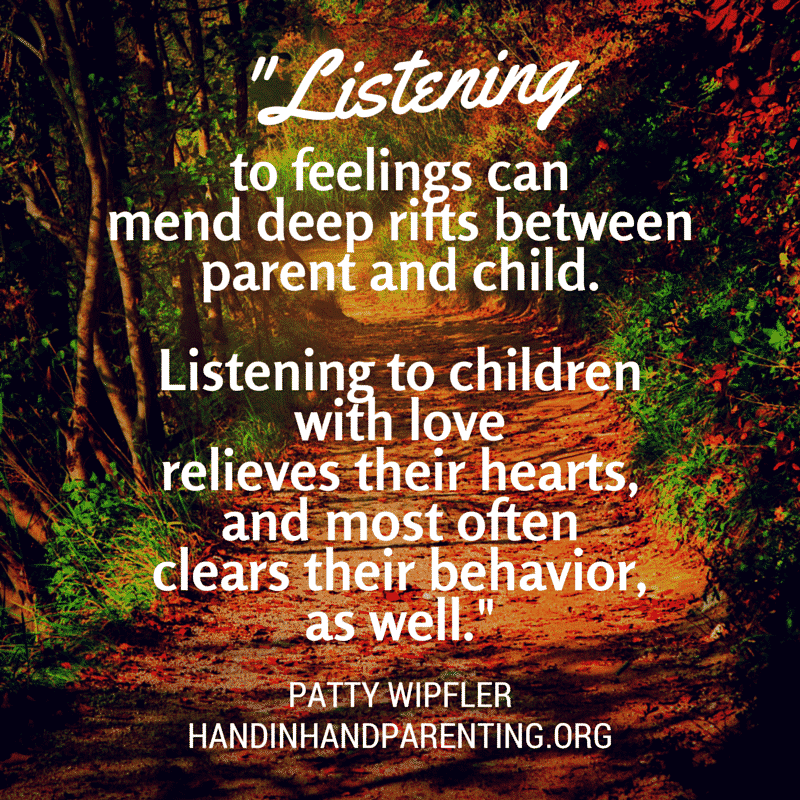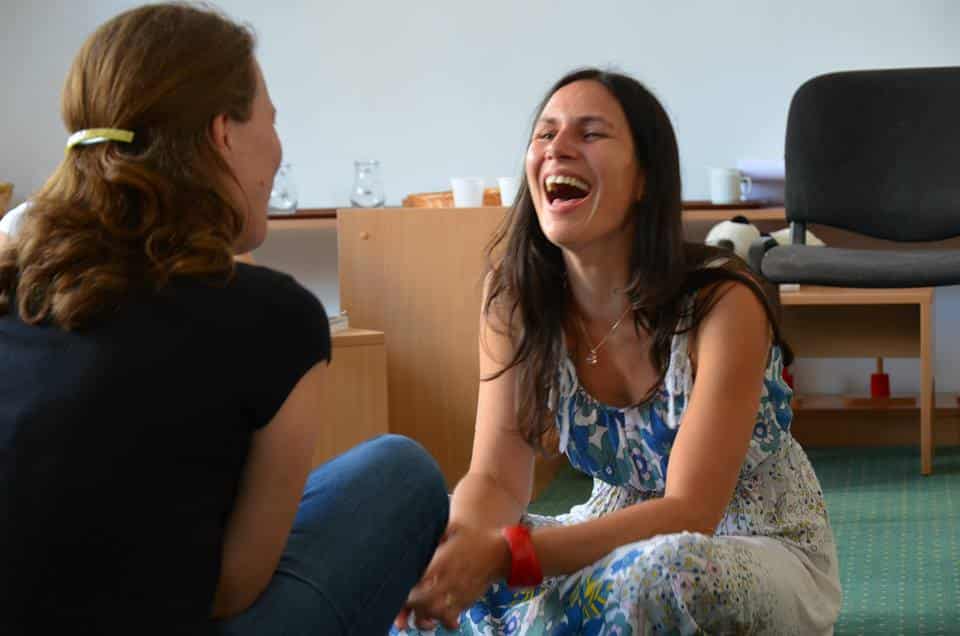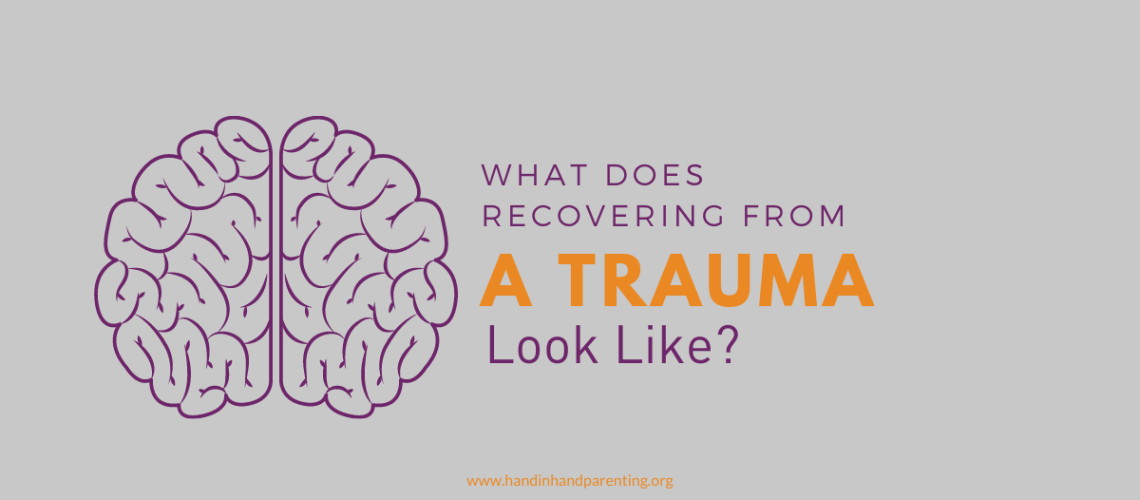Interpersonal neurobiology is teaching us a great deal about how relationships shape our brains, how memories are formed, and how those memories affect our interactions.
For parents, it provides insights into how our memories affect our everyday interactions with our children, and helps us understand how we can repair the damage left by difficult early experiences.
How do you define trauma?
Overwhelming childhood experiences do not have to be what we typically think of as traumas.
It can cover a wide range of experiences, such as a dog frightening us, a friend rejecting us, tense or distracted parents, or severe neglect or abuse. When painful or frightening experiences happen that overwhelm a person, particularly a child, and they do not have the support of a warm, attentive listener, those experiences are held in the brain in a different way than experiences that are not overwhelming, ordinary, and readily understood.
 Painful or frightening incidents that happen to a child can become understandable after a supportive person has listened to the child’s emotional upset all the way through, and the child feels whole again.
Painful or frightening incidents that happen to a child can become understandable after a supportive person has listened to the child’s emotional upset all the way through, and the child feels whole again.
How these events impact a child depends on the age of the child experiencing them, the sensitivity of his or her system, previous experiences, and most importantly, whether the child has supportive adults around.
Overwhelming events become traumas, separated from our full awareness, if they are not seen and held by a trusted adult. When these events are held mostly out of conscious awareness, they continue to colour our experience and perception, and can flood us emotionally at times, such as when we are parenting our children. Children are particularly potent at evoking stored early traumas in parents because of the challenge of their on-going care, and because they remind us of our early selves, or others in our early lives.
What does recovering from a trauma look like?
Our systems have an inherent impulse toward health and integration, and await the warm support of a good listener to be able to make sense of previously overwhelming experiences with understanding and comfort.
Stored emotion from a hurtful past experience can be recognized by its tendency to flare up suddenly, causing emotion far more intense in proportion to what is presently occurring. These emotions from the past shape perception in negative ways. When stored emotions are ignited, you may behave in ways that you don’t want to with your children. You may become enraged when one of your children hits the other, or hits you, for example. Or your child cries heartily, and you feel you cannot tolerate it, so you snap at them to stop.
You can become more aware of what stored feelings you carry, and recognize when they become evoked.
You can also become more and more skilled with working to release the stored feelings you carry. Each time stored emotions flare up, you have an opportunity to get support in a way you weren’t able to in the past. Having a caring listener, or a few caring listeners, is the best resource to do that, and is essential at times.
This is where parent-to-parent listening partnerships can come in. There are a few important elements in the repair of early overwhelming experience, which listening partnerships can often provide.
One is that the person being listened to is currently experiencing the feeling, or can bring that feeling back intentionally. The second element is having a safe relationship with a trusted listener. This kind of relationship can be built over time, if a listener follows guidelines that prevent them from injecting advice,  judgment, or their own philosophy or interpretation. A safe relationship is one where the person feels held with understanding, trust, gentle curiosity, warmth, inclusive welcome, and listening.
judgment, or their own philosophy or interpretation. A safe relationship is one where the person feels held with understanding, trust, gentle curiosity, warmth, inclusive welcome, and listening.
The listener must then follow the unfolding process of the person who is re-experiencing painful feelings, and allow full expression of those feelings. The listener must respond in a way that gives the receiver what they didn’t get at the time of the trauma. Usually this means acceptance, comfort, validation, and understanding. The listener needs to be in a state where they can comfortably do this without becoming overwhelmed themselves. Both listener and receiver are in a state where they may be challenged, but they are not overwhelmed by the expression of the traumatic experience.
You can tell if the receiver is able to be with their feelings if they can still feel you with them. The receiver may need to simply be with their memory as it unfolds, and share that with the listener, or they may need to express it emotionally. That expression may be crying, raging, shivering, laughing, sweating, or a need to express in words what was not expressed at the time of the trauma.
What is the result of all this listening?
Each time a difficult memory is evoked and met with the attention of a confident listener, it changes. The experience of comfort, understanding, and the presence of a connected other gets added to the experience, and it goes back into long term storage changed. This leads, over time and with repetition, to less reactivity and intensity when under stress or when events remind you of early negative experience. This leads to more capacity to relax, play, and be present with our children, to feel more freedom, and be more loving with them. To truly support our children, we must truly support ourselves, too. We parents can help one another greatly in this, when we exchange the favour of listening.
For more information on how Hand in Hand Parenting could benefit the families in your practice – Professionals Intensive in Hand in Hand Parenting Tools.
Sandra is a registered psychotherapist, in private practice since 2005, specializing in working with adults who have experienced childhood trauma. More about her therapy practice. Listen to this 3 Minute audio clip, in which she describes how you can help your listening partner release emotions. You can contact Sandra via email.
Save
Save
Save
Save
Save

